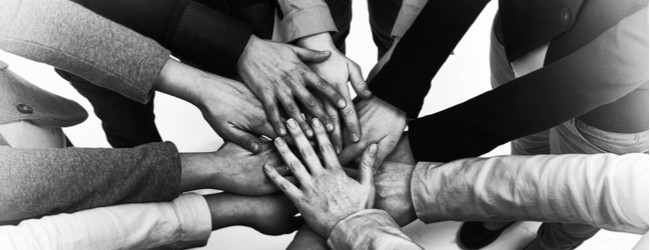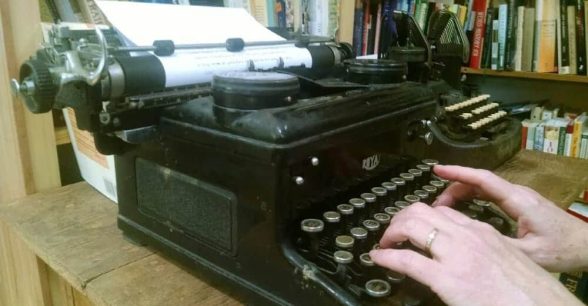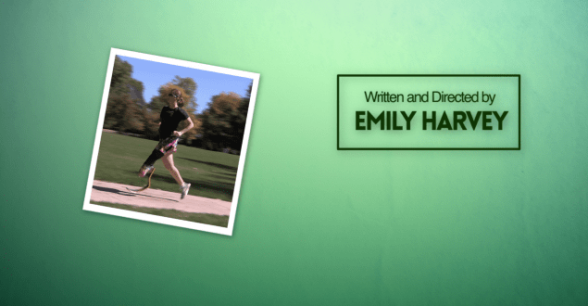Why Won’t Doctors Believe Women in Pain?
I’ve never been drunk, never once succumbed to peer pressure to smoke, do drugs or get high. I’m not a partier — never have been, never will be. Up until three and a half years ago, the strongest substance I ever took for pain relief was aspirin, despite having a chronic illness and chronic pain since I was seven years old.
I used to take pride in toughing out the pain that all but consumed me. Until I spent half a summer unable to sleep because the pain was so torturous it took my breath away. Most of my body was swollen and purple, a result of broken blood vessels and blood leaking under my skin from vasculitis, and I could no longer do any of the things I love, including writing and walking my dogs.
When I ended up in the emergency room for the fourth time that summer, a nurse told me doctors had no idea how to treat my autoimmune disease, but I deserved to be treated for my pain. He put morphine in my IV and I experienced pain relief for the first time in my life. It was a revelation.
I felt like I could finally breathe again (had I ever truly breathed before, a breath that wasn’t shallow or gasping, shaky or desperate?) Without so much pain to focus on, a gnawing question that had been buried in my subconscious for years finally reached the surface: Why exactly was it that I’d felt heroic — like I was racking up karma and brownie points and moral superiority — by allowing myself to suffer, minute after minute, day after day, year after year?
I would soon realize the answer. Society is just fine with women suffering. What society is not fine with is women choosing what we will and will not tolerate.
Experiencing Pain
When I got my first period, the novelty wore off after a couple days, and I was suddenly struck with a sinking realization: I’m going to have to experience painful menstrual cramping every 28 days for the next 30-some years?!
In the grand scheme of things, it might not seem like that big a deal, but it sets a precedent: Women experiencing regular menstrual pain is just a given — part of being a woman.
It’s not too big a leap for me to come to assume that it’s just “part of being a woman” for me to suffer in silence — for more than two decades — without taking anything stronger than aspirin for my autoimmune disease.
It’s not polite to talk about period pain. But at least the medical community acknowledges it exists. It took 10 years for doctors to acknowledge my autoimmune disease symptoms weren’t “all in my head” — a common line used by doctors when dismissing women’s pain — and another 10 years for doctors to actually treat my pain.
When you’re told you’re “crazy” often enough, you either stop speaking up, or you find another method to cope. My method of coping was to smile through the pain and consider myself Wonder Woman, even though the pain was so excruciating I often feared I’d pass out in the middle of a conversation with friends, my heart racing so much I could barely breathe.
Speaking Out
Six months ago, President Trump declared the opioid epidemic a national emergency.
And suddenly doctors are telling me I should go back to just toughing out the pain, even though 78% of the people who misuse opioids were not prescribed them by a doctor and even though the rate of addiction to opioids by chronic pain patients with no history of drug abuse or addiction (like me) has been calculated at only 0.19%.
I argue my case by quoting the emergency room nurse who first gave me morphine — if you can’t treat the disease that causes my disability (Sjogren’s Syndrome) then don’t I at least deserve to have my pain treated so I can continue to write and walk my dogs? I often point to the sign on the exam room wall that says patients have a right to pain management. But doctors ignore the statistics, glaze over the sign and dismiss my plea not to have my quality of life rescinded.
Why? Because society has no qualms about women suffering. It’s just “part of being female.”
Except it doesn’t have to be.
Pretending I’m not in pain doesn’t make me Wonder Woman. But speaking the hell up about the gender bias in medicine and refusing to let pain be a given? I’m pretty sure that’s the definition of an Amazonian warrior — and I’m recruiting an army. Join me.
About Rooted In Rights
Rooted in Rights exists to amplify the perspectives of the disability community. Blog posts and storyteller videos that we publish and content we re-share on social media do not necessarily reflect the opinions or values of Rooted in Rights nor indicate an endorsement of a program or service by Rooted in Rights. We respect and aim to reflect the diversity of opinions and experiences of the disability community. Rooted in Rights seeks to highlight discussions, not direct them. Learn more about Rooted In Rights




Damn…. it’s insane. Doctors are supposed to take care of us. Doesn’t the Hippocratic Oath state, “First do no harm.”? Telling you to “go back to toughing out the pain” doesn’t sound like doing no harm. In regards to period pain, believe me I feel you.
Mine isn’t that bad now… but I’d still like to have medicine that works if I want it. Now, the company that made Menstridol is no longer making it and no reason is even given as far as I can tell. It’s the only thing that ever worked for me. It say it lasts for 12 hours but really only lasts for 10 or 11.
That’s still quite preferable to the six hour pill that only lasts four or five. I don’t like taking many pills so a 12 hour pill was awesome. This shit has to stop.
Thank you so much, Neko, for reading my article and taking the time to leave such a thoughtful reply. You’re absolutely right: Doctors are supposed to follow the Hippocratic Oath and do no harm above all else. We see them when we’re at our most vulnerable, and for them to take advantage of that is truly unconscionable. I wish I could say that I’ve won my fight, that advocating for myself has resulted in knowing my pain will be controlled and I’ll be able to continue to write and walk my dogs and do the things I love. But I’m on a pain contract and this battle resumes every 30 days, meaning I have to literally fight for my life every single month, up against a misogynistic doctor who will never believe my pain is anything but “all in my head”. It’s completely brutal and beyond disheartening. My only hope in speaking out is that one day things can change for women like you and me.
I’m so sorry about your own pain and fight for pain relief. Your last line says it best: “This shit has to stop.” I couldn’t agree more.
My daughter’s poignant, beautifully written essay is not an indictment on the entire medical profession. But it IS a chilling account of the abusive power a doctor can wield over a patient. I know the doctor in question. I have argued, pleaded and bargained with him on Brijana’s behalf with occasional — minimal — success.
The doctor decided before meeting Brijana that the diagnosis of one of the most highly respected rheumatologists in the country was wrong and that he — a newly trained family doctor — was right. Nothing and no one — including his peers and superiors — will dissuade him.
It is beyond horrific that Brijana fears going to the doctor every month. it is beyond brave that she is sharing her story in the hope of helping other disbelieved female patients.
She will never stop fighting for her right to humane, ethical medical treatment. It is wrong that she must.
Doctors hold power over patients, no matter how kind, caring, thoughtful and conscientious they are. They decide whether or not our ailments are treated and how effectively they’re treated. They decide whether to listen to us or make snap judgments that could have either permanent or lifelong deleterious effects. And when doctors ABUSE their power? It creates an impossible situation, particularly for patients like me who are on a pain contract and are beholden to their insurance. So to answer the stereotypical “Why doesn’t she just leave?” question, my pain contract says I can’t get pain medication from anywhere else — and even if I were to break the contract, there is no better clinic that will take me with my insurance. I’m at the best clinic there is given my insurance and am lucky to be there (there’s a year-plus waiting list to be seen at my “state-of-the-art” clinic). So I stay and fight my case every single month, which is beyond depressing. But I hope that by sharing my story, there will come a day when women being in pain is no longer seen as either a made up psychosis or a real ailment she should just suffer though because it’s “part of being a woman”.
I have decided to change my PCP of more than 15 yrs because he was dismissive of symptoms presented AND when presented with radiology results would not admit error.
I’m so sorry your longterm PCP was dismissive of your symptoms — even when presented with what should have been irrefutable evidence. My misogynistic doctor did the same thing to me: He made a snap judgment — that my pain was “all in my head” — and when presented with specialist after specialist who refuted his theory, he just became more and more adamant that he was right and everyone else was wrong. It’s absolutely infuriating and I’m so sorry you’re going through this too. I thank you for adding your experience to the conversation, as doctors dismissing women’s pain is far too common. I hope that the more we talk about this publicly, the more it becomes like #metoo, with the power to topple misogynistic doctors and validate women’s pain.
So very true that it brings tears to my eyes thinking about you and others walking around in so much pain that basic daily functions are a challenge and a struggle. Everyone deserves mindful humane healthcare. Everyone! Pain takes a toll on your physical, mental and psychological well-being, and this is something that everyone pays the price for in the end; if our society does not acknowledge and take action on this issue then society (definition: the aggregate of people living together) is poorer for it.
Thank you with all my heart, Janice, for reading my article and leaving such a heartfelt and thoughtful comment. What a wonderful gift! You’re absolutely right: Being in pain takes a toll on your physical, mental and psychological well-being. I can also attest that being disbelieved about your pain amplifies that toll monumentally. I look forward to the day when women’s pain isn’t either tossed aside or glibly described as the price to pay for being female. I wholeheartedly believe if being in pain were “just part of being a man,” pain would no longer exist.